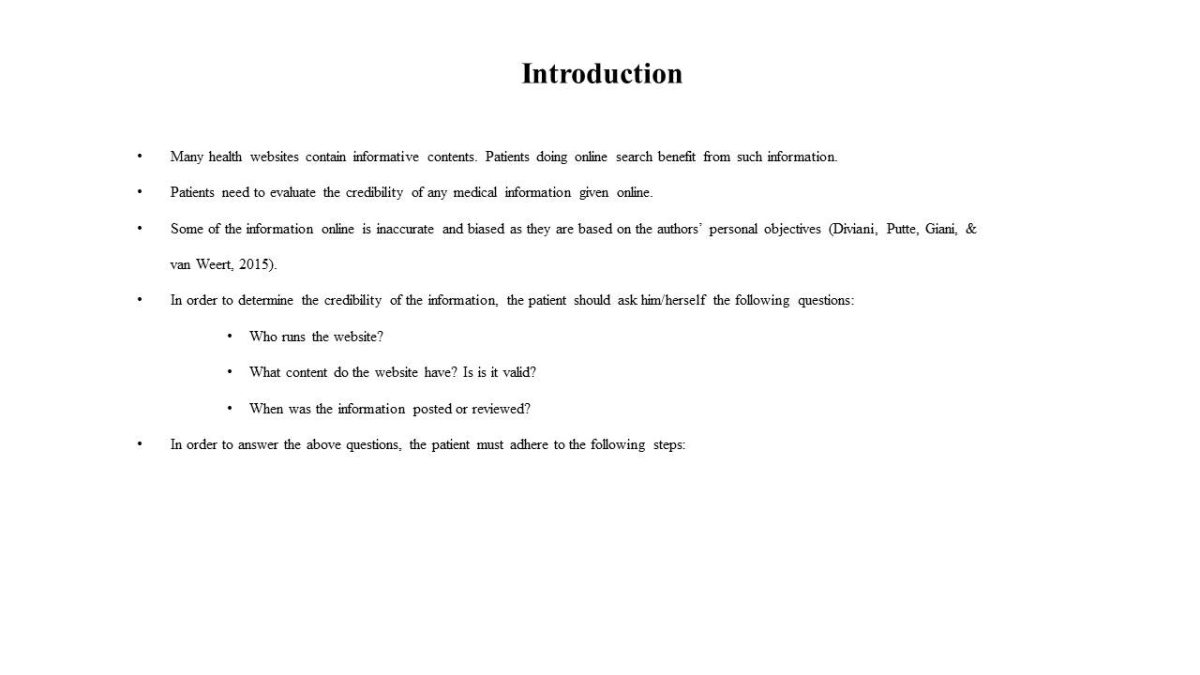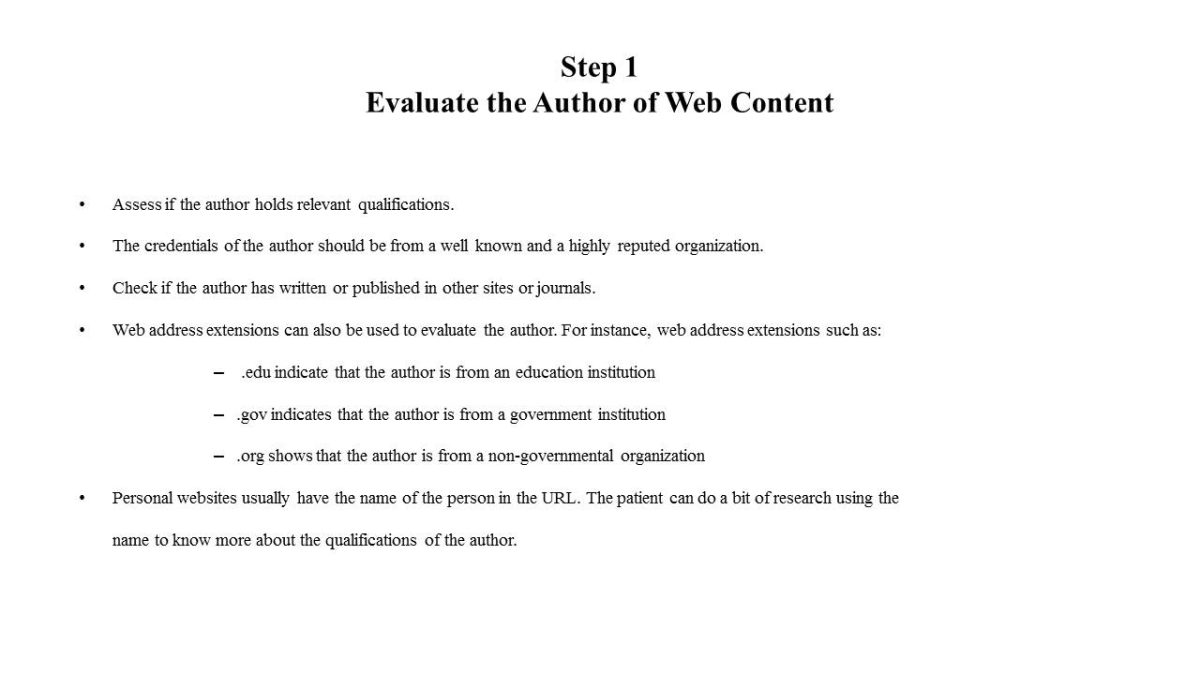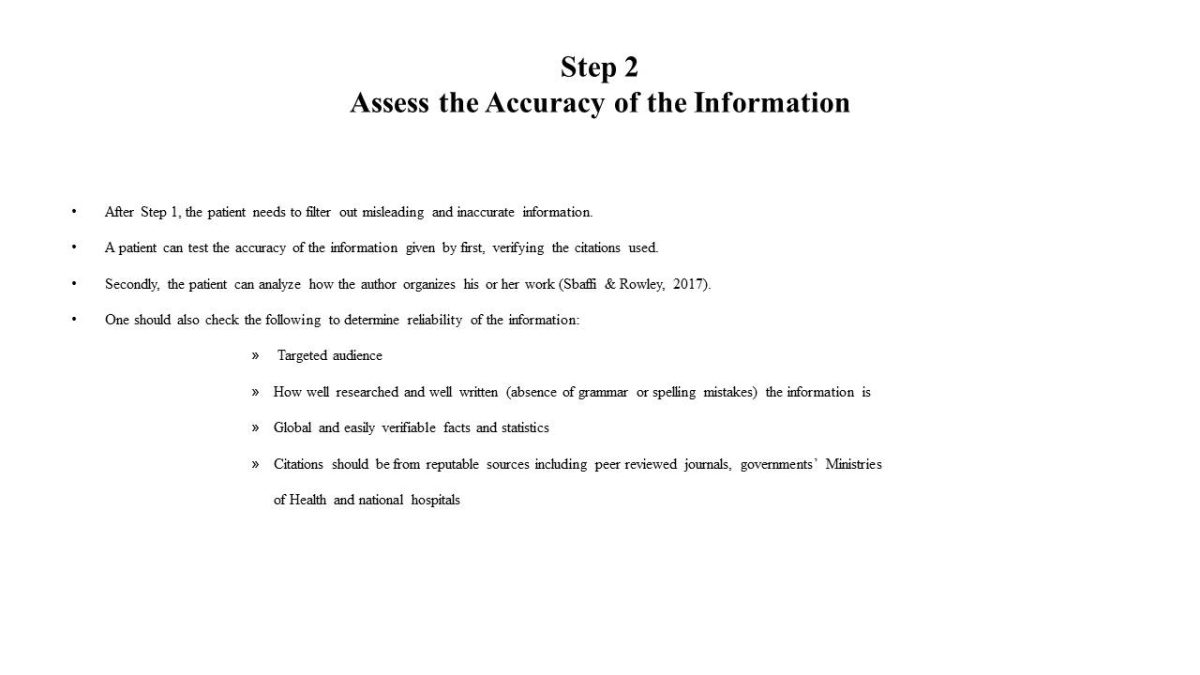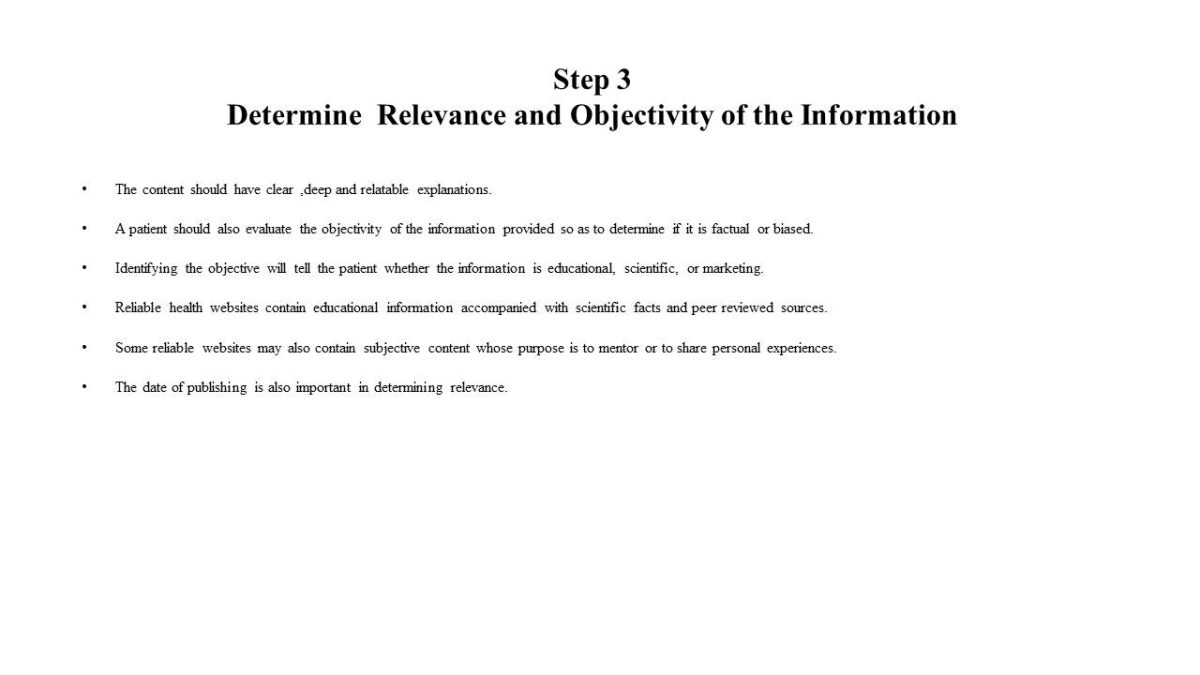Introduction
Many health websites contain informative contents. Patients doing online search benefit from such information.
Patients need to evaluate the credibility of any medical information given online.
Some of the information online is inaccurate and biased as they are based on the authors’ personal objectives (Diviani, Putte, Giani, & van Weert, 2015).
In order to determine the credibility of the information, the patient should ask him/herself the following questions:
- Who runs the website?
- What content do the website have? Is is it valid?
- When was the information posted or reviewed?
A patient can easily identify a health website with inaccurate information. Some of the red flags include, outdated information which is far from recent research, contains excessive claims of what a product can do, is sponsored by an organization whose objective differs from yours.
In order to answer the above questions, the patient must adhere to the following steps.

Step 1: Evaluate the Author of Web Content
Assess if the author holds relevant qualifications.
The credentials of the author should be from a well known and a highly reputed organization.
Check if the author has written or published in other sites or journals.
Web address extensions can also be used to evaluate the author. For instance, web address extensions such as:
- edu indicate that the author is from an education institution;
- gov indicates that the author is from a government institution;
- org shows that the author is from a non-governmental organization.
Personal websites usually have the name of the person in the URL. The patient can do a bit of research using the name to know more about the qualifications of the author.
The author of the website or article must be a professional. In many credible websites, the author’s background and work experience are available to the reader. The website should also indicate clearly the contact information and location of the author. Additionally, other works done or published should be clearly highlighted in the bio of the author.

Step 2: Assess the Accuracy of the Information
After Step 1, the patient needs to filter out misleading and inaccurate information.
A patient can test the accuracy of the information given by first, verifying the citations used.
Secondly, the patient can analyze how the author organizes his or her work (Sbaffi & Rowley, 2017).
One should also check the following to determine reliability of the information:
- Targeted audience;
- How well researched and well written (absence of grammar or spelling mistakes) the information is;
- Global and easily verifiable facts and statistics;
- Citations should be from reputable sources including peer reviewed journals, governments’ Ministries of Health and national hospitals.
Once the author has been assessed as genuine, the patient has to assess the information that has been given. Indeed, some authors might have the right qualifications, but they still offer biased information.

Step 3: Determine Relevance and Objectivity of the Information
- The content should have clear ,deep and relatable explanations.
- A patient should also evaluate the objectivity of the information provided so as to determine if it is factual or biased.
- Identifying the objective will tell the patient whether the information is educational, scientific, or marketing.
- Reliable health websites contain educational information accompanied with scientific facts and peer reviewed sources.
- Some reliable websites may also contain subjective content whose purpose is to mentor or to share personal experiences.
- The date of publishing is also important in determining relevance.
The information a patient gets from the website should suit his or her needs. In order to evaluate objectivity, the patient should note the counter-arguments made in the article, and the explanations the author has used against them. The date of publishing is also important in determining relevance. Recentlyt updated websites are more reliable than older ones.

References
Diviani, N., Putte, B., Giani, S., & van Weert, J. C. M. (2015). Low health literacy and evaluation of online health information: A systematic review of the literature. Journal of Medical Internet Research, 17(5), e112.
Sbaffi, L., & Rowley, J. (2017). Trust and credibility in web-based health information: A review and agenda for future research. Journal of Medical Internet Research, 19(6), e218.